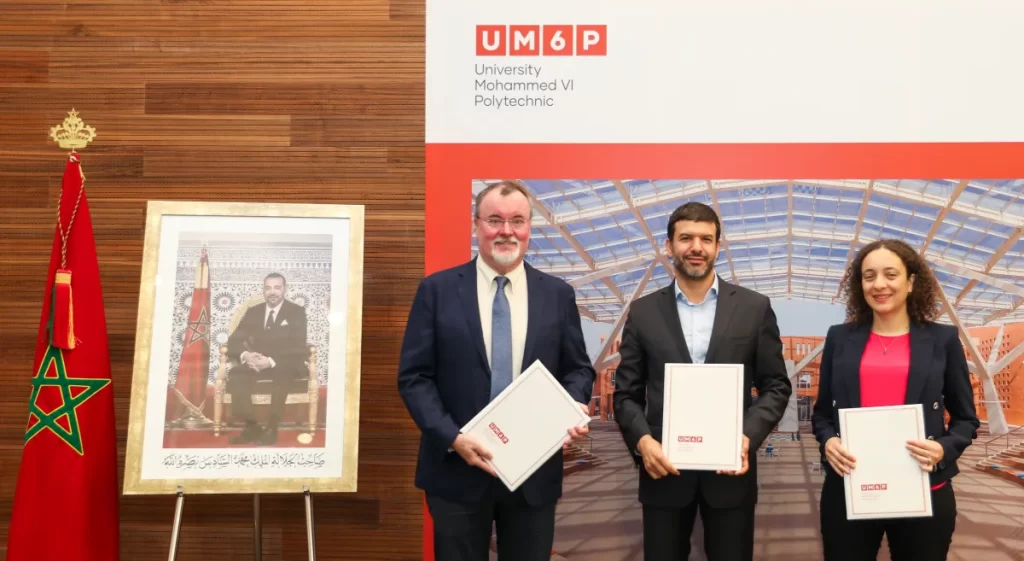Read in
OCP Group, the world’s largest phosphate-based fertilizer producer, the University Mohammed VI Polytechnic (UM6P), and American agriculture startup Regrow have signed a strategic partnership to develop an MRV (Measuring, Reporting, and Verification) system specific to African soil.
The system is based on the biogeochemical “DNDC” model (DeNitrification-DeComposition), a globally calibrated and validated scientific model, recognized by reference standards. The objective of the project is to explore the potential of soil to sequester carbon, boost its fertility, and improve equitable access to the carbon market, thereby promoting soil health on the continent.
The project will provide African farmers with access to a state-of-the-art MRV (Measuring, Reporting, and Verification) system at a competitive cost compared to conventional MRV systems. It will also encourage them to adopt sustainable agricultural practices, improve their soil health and yield, and develop an additional income streams through carbon credits.
MRV (Measuring, Reporting, and Verification) systems are essential pre-requisites for the certification of carbon sequestration projects, which consists of investing in soil carbon fixation programs through the adoption of sustainable agricultural practices. However, the cost of conventional carbon dioxide (CO2) quantifying methods via direct soil analysis constitutes a barrier of entry for project developers, as well as farmers (particularly African ones), wishing to adopt more sustainable agricultural practices that are likely to generate carbon credits. The digitalization of MRV (Measuring, Reporting, and Verification) would remove this obstacle and respond to the needs to quantify CO2eq in an agile and more affordable manner.
A crucial consequence of this project will be the development and implementation of a digital platform, with a user-friendly interface containing key farmer characteristics, management data inputs, carbon project tracking, and a link with teledetection tools based on Regrow’s satellite imagery, as well as the validated and calibrated DNDC model.
OCP Group, UM6P, and Regrow support the sustainable transformation of agricultural systems to feed the planet and fight climate change. This project is only the beginning of a larger collaboration between the stakeholders to promote soil health and carbon sequestration. Thanks to this partnership, OCP Group reaffirms its position as a leader in the transition to a green and sustainable agriculture in Africa.
“The OCP Group works hand-in-hand with its partners and farmers to implement sustainable practices to improve soil health, contribute to global food security, and combat global warming. This project to adapt the DNDC model to African soil with UM6P and Regrow is an important step to unlock the potential of Africa in this global effort. OCP thereby affirms its commitment to African farmers, particularly the smallholder ones,” Naoufal Mahdar, Vice-President of Climate Action & Decarbonization at OCP Group, emphasizes.
“We are delighted to be joining forces to promote resilient, equitable and sustainable food systems in Africa, with the aim of ensuring food and nutritional security for all. This partnership represents a firm commitment to actively participate in the fight against climate change by understanding the carbon storage capacity of African soils,” declared Mr. Hicham EL Habti, President of UM6P.
William A. Salas, Regrow’s Chief Strategy Officer, commented, “Regrow is focused on improving agricultural resilience. Approximately half of Africa’s workforce is employed in farming, which further underscores why advancing agricultural productivity is crucial to the continent’s economic prospects. Regrow is pleased to be partnering with OCP, a leading agribusiness, and UM6P to positively impact farmer livelihoods.”


